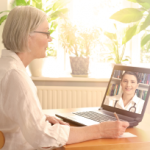Dr. Mehrotra tells Reuters Health by email, “There is ongoing debate on whether to expand telemedicine in the Medicare program. Our results highlight that the targeted and cautious approach by Medicare to date has reached sicker, rural, and relatively poorer beneficiaries with mental illness. Arguably, the population with the most dire access issues is benefiting most from telemedicine.”
“Because widespread expansion of telemedicine would raise concerns about overuse, I advocate that Medicare expand access to telemedicine but still limit [its use] to clinical settings where the patient population more often has difficulty accessing care [in settings] such as community health centers,” he says.
Dr. Gary C. Doolittle, interim director of clinical oncology at the University of Kansas Hospital in Kansas City, told Reuters Health by email, “We’ve been using telemedicine since 1994 and (its) growth is very positive. Telemedicine is extremely important for us as we serve many rural patients in Kansas.”
“For example, tablets are provided to hospice patients so that they and their caregivers can video conference with hospice specialists and regularly check in on patient health and address any questions or needs. Also, hospital specialists are available remotely to provide second opinions with cancer diagnoses. Instead of patients driving six hours to the see the doctor, they can video conference from home and interact with specialists at the hospital’s cancer center in real time,” Dr. Doolittle says. “We need to make sure that policies support this initiative.”
Melvin Hall and CHSi Corporation funded this research. The authors reported no disclosures.


